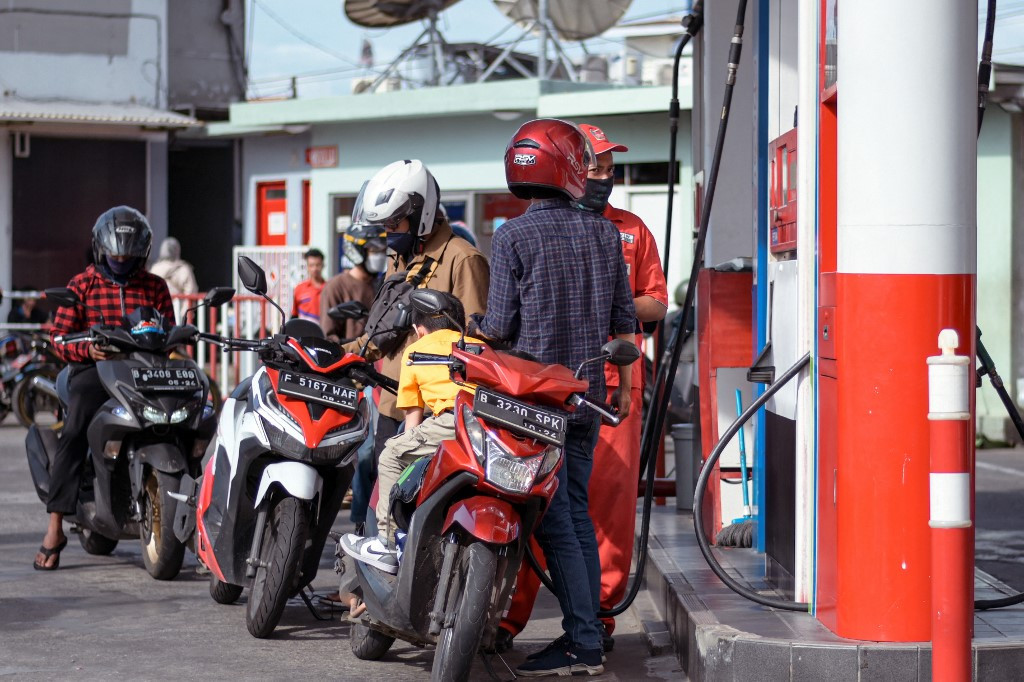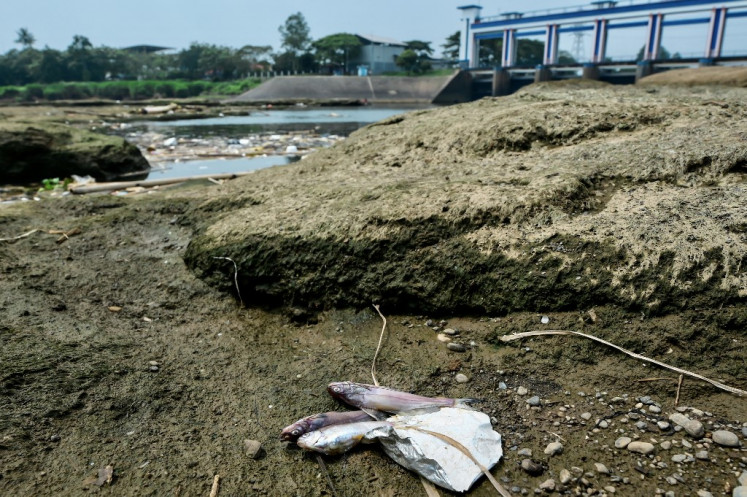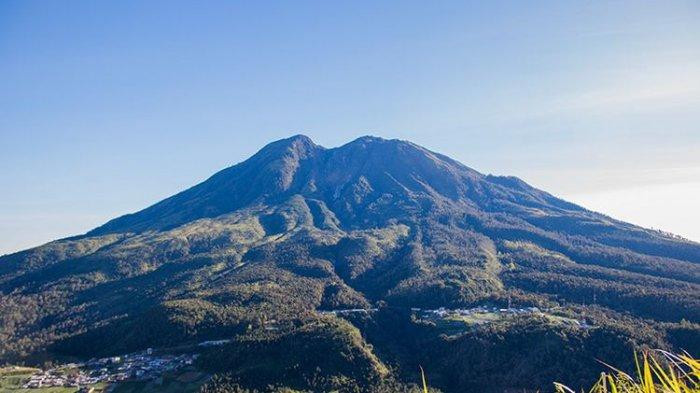Popular Reads
Top Results
Can't find what you're looking for?
View all search resultsPopular Reads
Top Results
Can't find what you're looking for?
View all search resultsGovernment hikes fuel prices to rein in ballooning subsidies
The government raised subsidized fuel prices by about 30 percent on Saturday, top officials said, as the it moves to rein in ballooning subsidies despite a risk of mass protests.
Change text size
Gift Premium Articles
to Anyone
T
he government raised subsidized fuel prices by about 30 percent on Saturday, top officials said, as it moves to rein in ballooning subsidies despite a risk of mass protests.
From 2:30 p.m. on Saturday, the price of subsidized Pertalite gasoline rose to Rp 10,000 rupiah ($67 US cents) a liter from Rp 7,650, while that of subsidized diesel will increase to Rp 6,800 a liter from Rp 5,150, Energy and Mineral Resources Minister Arifin Tasrif said.
President Joko "Jokowi" Widodo said the decision to adjust fuel prices was a difficult one and was his "last option".
The subsidy budget in Southeast Asia's largest economy had tripled in 2022 to Rp 502 trillion ($34 billion) from its original budget, pushed by rising global prices of oil and a depreciating rupiah currency.
Finance Minister Sri Mulyani Indrawati said more money would still be needed despite the fuel price hike, the amount depending on international crude prices.
"We are monitoring the impact (of the measure) on inflation and economic growth," Sri Mulyani said, adding that the government would provide cash handouts for the poor to cushion the blow.
High energy subsidies had previously kept Indonesia's inflation low, allowing the central bank to delay raising interest rates until last month, well behind regional and global peers. The August inflation rate was 4.69 percent.
Bank Indonesia Governor Perry Warjiyo said last month monetary policymakers would re-assess the inflation outlook in response to the government's fuel price policy. The bank holds a two-day policy meeting ending on Sept. 22.
Hariyadi Sukamdani, head of the Indonesian Employers Association, said price pressure from the fuel price hike would not be too much, predicting inflation will top 6 percent at the end of the year.
"If prices of goods are too expensive, people won't buy. We can't raise prices too much," he said.
Businesses are using unsubsidised fuels, but the price hike will affect logistics costs, Hariyadi said.
Still, accelerating inflation could put pressure on Bank Indonesia (BI) to tighten monetary policy more quickly. The bank holds a two-day policy meeting ending on Sept. 22.
Bank Mandiri economist Faisal Rachman estimated inflation could accelerate to between 6 percent and 7 percent and BI could raise the policy rate to 4.25 percent this year from 3.75 percent now.
Faisal forecasts 5 percent economic growth this year despite the fuel price increase, supported by commodity exports and post-pandemic mobility, adding that the government's cash distribution could help cushion some of the impact on consumption. The economy grew 5.44 percent in the April-June quarter.
The government has allocated an additional Rp 24.17 trillion rupiah for cash handouts to help the poor cope with the policy's impact, Jokowi said.
Fuel prices are politically sensitive in Indonesia, and the changes will have major implications for households and small businesses, as subsidised fuel accounts for more than 80% of state-owned oil giant Pertamina's sales.
The last fuel price hike was in 2014, months after Jokowi took office, aiming to free up fiscal space. That sparked protests across the archipelago.
The opposition Labour Party has arranged a protest involving thousands of workers for Tuesday, chairman Said Iqbal, who also heads a trade union, told Reuters. He called on parliament to pressure the government to cancel the price hike.
"This will hurt purchasing power," he said. "Wages have not increased for three years and inflation is bound to rise sharply."
Small protests against any price hike, mostly led by students, had erupted in the recent days in several cities.
After the price hike announcement, Pertamina said it was committed to ensuring adequate fuel supplies nationally. Cars were seen queuing in some stations in the capital Jakarta after the announcement.
Pertamina, Asia's biggest gasoline importer, had deferred some of its gasoline deliveries for September ahead of the price hike, due to an expected drop in fuel demand, traders said.











